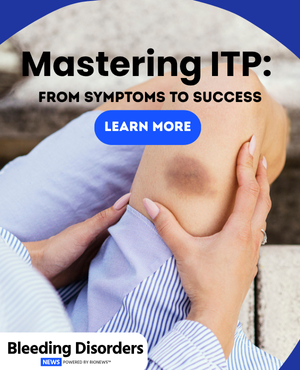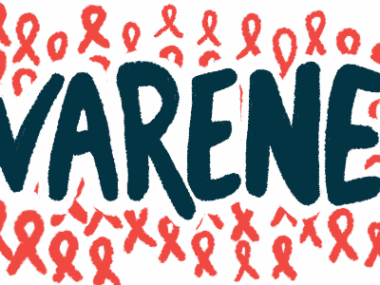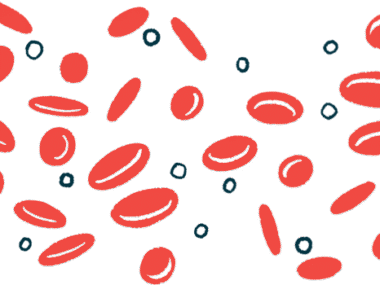Doptelet found safe, effective in previously treated children with ITP
Findings 'broadly consistent' with what's been seen in adults
Written by |

Doptelet (avatrombopag) was safe and effective in children with immune thrombocytopenia (ITP) who had an insufficient response to previous treatments, according to recently data from a Phase 3b trial.
The study, “Avatrombopag for the treatment of children and adolescents with immune thrombocytopenia (AVA-PED-301): a multicentre, randomised, double-blind, placebo-controlled, phase 3b study,” was published in The Lancet Haematology. The publication and clinical trial were sponsored by Sobi, Doptelet’s developer.
Doptelet is approved in the U.S. as an oral tablet formulation for certain adults with chronic ITP who haven’t responded to prior treatments. Data from this study supported Sobi’s application to expand Doptelet’s U.S. label to children, ages 1 year and older with persistent or chronic ITP. A decision is due this month.
Also under review is an oral suspension formulation of Doptelet that was given to younger children in the trial. That formulation comes as granule-containing capsules that can be opened and sprinkled on soft foods or liquids.
“Choice of second-line treatment for children and adolescents with ITP is complex, with physician, patient, and family preferences influenced by multiple factors,” the researchers wrote. “It is therefore important that these patients have therapeutic options available that could enable them to successfully manage their disease and maintain their quality of life.”
ITP is a rare autoimmune disease where people are at risk of excessive bleeding because their immune system mistakenly attacks and destroys platelets, the circulating cell fragments that enable blood clotting after an injury.
Testing Doptelet in pediatric population
Doptelet belongs to a class of ITP treatments called thrombopoietin receptor agonists (TPO-RAs), which mimic the activity of the hormone that normally stimulates the bone marrow to make more platelets. This should help boost platelet production and lower the risk of bleeding.
TPO-RAs are used as second-line therapies in ITP. In the U.S., Doptelet is approved for adults with chronic ITP who’ve had an insufficient response to a previous treatment.
The Phase 3b AVA-PED-301 study (NCT04516967) was designed to assess Doptelet’s safety and efficacy in a pediatric population. It enrolled 75 children, ages 1-17, with primary ITP that had lasted at least six months and who’d responded insufficiently to a previous treatment. Most had previously received another TPO-RA and at least three prior lines of treatment overall.
The children were randomly assigned to Doptelet or a placebo once daily for 12 weeks, or about three months. Those who were at least age 6 received oral tablets, while younger ones were given the oral suspension, with the dose titrated to achieve optimal platelet counts.
The study had two main goals — to evaluate whether more participants on Doptelet than on the placebo would achieve a platelet response and a durable platelet response. With both outcomes, an optimal platelet count of at least 50 billion platelets per liter — a threshold where the risk of significant bleeding is believed to be substantially reduced — must be achieved without the need for rescue therapy.
A platelet response was defined as reaching that threshold for at least two consecutive assessments over 12 weeks, while a durable response required that it be met for at least six of the last eight weeks.
Both goals were met, with significantly more children given Doptelet achieving each endpoint than in the placebo group, Specifically, 81% on Doptelet had a platelet response and 28% had a durable response. No children in the placebo group achieved either goal.
Generally, platelet counts rapidly increased in the first two weeks and remained relatively stable thereafter, with greater stability seen in adolescent participants than in younger children.
Secondary outcome measures also favored Doptelet, including a lesser need for rescue therapy and more weeks spent in the optimal platelet range. Fewer children on Doptelet had severe bleeds that would require medical attention (19% vs. 38%) and more had no bleeding symptoms at all (17% vs. 10%). Doptelet was well tolerated and its safety profile was consistent with that observed in adults.
The children said the oral suspension formulation was palatable and most caregivers considered it acceptable for their child.
The scientists said the findings are “broadly consistent” with what has been seen in adults with ITP. “The results of this study suggest that [Doptelet] is an effective oral TPO-RA for children and adolescents with persistent and chronic ITP … who have had an insufficient response to previous therapy, resulting in a decrease of treatment and disease burden for patients and their caregivers,” they wrote.
An open-label extension phase of the trial is now ongoing, with all children receiving Doptelet for up to two years.




